7 foods to skip if you have IBD
Steering clear of these foods can help ease digestion.
Updated on October 26, 2022
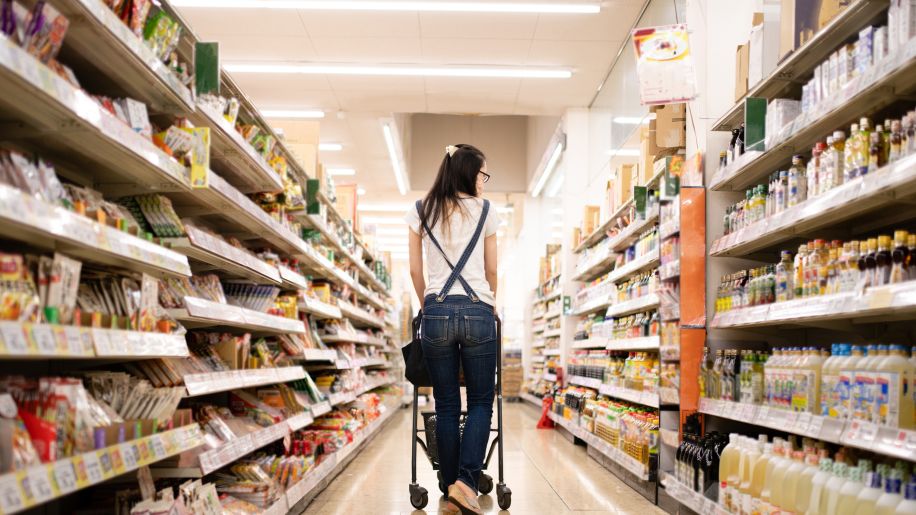
When people are diagnosed with inflammatory bowel disease (IBD), one of the first questions they’re likely to ask their healthcare providers (HCPs) is, “What can I eat?” But the better question might be, “What can’t I eat?” While diet doesn’t cause ulcerative colitis or Crohn’s disease, certain foods can be difficult to digest, and other foods can actually make your… Show More
When people are diagnosed with inflammatory bowel disease (IBD), one of the first questions they’re likely to ask their healthcare providers (HCPs) is, “What can I eat?” But the better question might be, “What can’t I eat?” While diet doesn’t cause ulcerative colitis or Crohn’s disease, certain foods can be difficult to digest, and other foods can actually make your symptoms worse if your IBD is active. You should always talk to your HCP or dietitian before making big changes to your diet, but here’s a rundown of the most common IBD troublemakers.
Show Less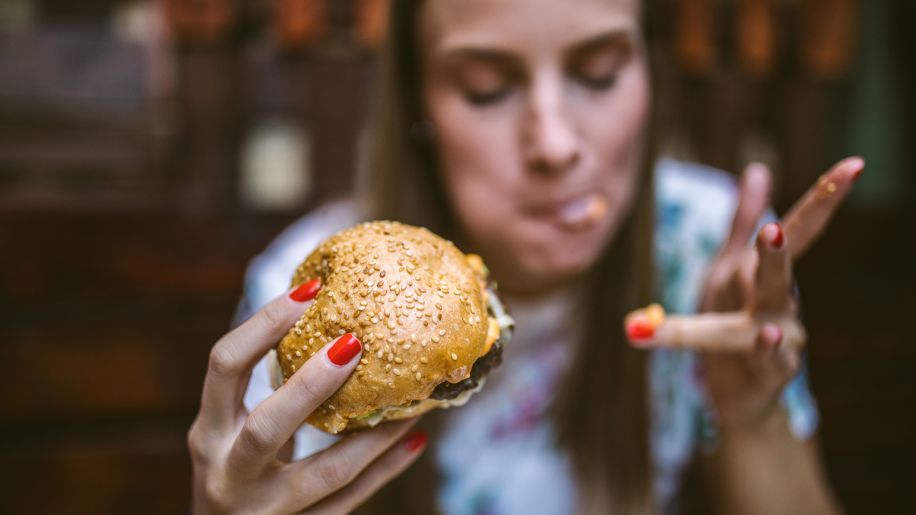
High-Fat Foods
Fried foods and other heavy, greasy meals should be limited by pretty much everybody because they’re high in calories and saturated fat. But if you’ve got IBD, they’re problematic for another reason. “Fatty foods are more difficult and slower to digest, and that often leads to stomach upset,” says… Show More
Fried foods and other heavy, greasy meals should be limited by pretty much everybody because they’re high in calories and saturated fat. But if you’ve got IBD, they’re problematic for another reason. “Fatty foods are more difficult and slower to digest, and that often leads to stomach upset,” says Lori Woodward, RD, a nutritionist at Atlanta Gastroenterology Associates. And if you have Crohn’s disease, high-fat foods are also bothersome because you may not be able to properly digest fat, which can lead to diarrhea.
Show Less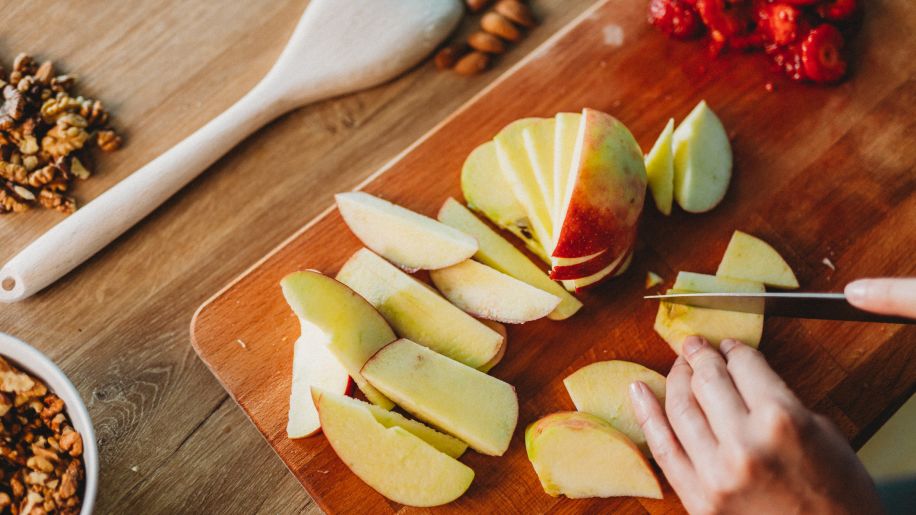
Raw Fruit and Veggies
Raw food may be trendy among health-food advocates right now, but it’s high on the list of tricky foods if you have IBD. That’s because raw fruit and vegetables can lead to additional bloating, gas, and stomach pain, says Woodward. The biggest offenders are edible produce skins (such as the skin on… Show More
Raw food may be trendy among health-food advocates right now, but it’s high on the list of tricky foods if you have IBD. That’s because raw fruit and vegetables can lead to additional bloating, gas, and stomach pain, says Woodward. The biggest offenders are edible produce skins (such as the skin on apples or peaches) and anything in the cruciferous family, including cabbage, cauliflower, and broccoli.
Show Less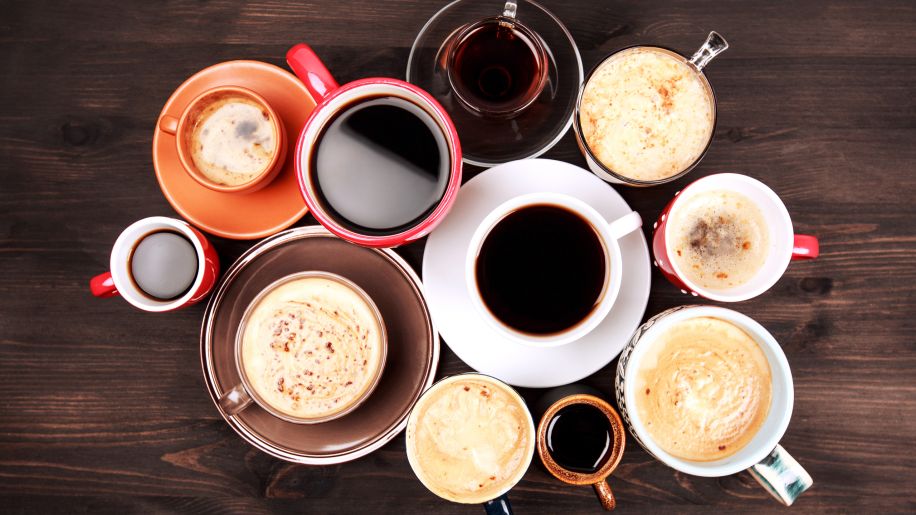
Coffee and Other Risky Drinks
Caffeine and alcohol aren’t recommended because both are stimulants, which means they can worsen some IBD symptoms, such as diarrhea and cramping. Sodas and other carbonated drinks are also on the “to be avoided” list because anything that introduces more gas into your digestive system can make you… Show More
Caffeine and alcohol aren’t recommended because both are stimulants, which means they can worsen some IBD symptoms, such as diarrhea and cramping. Sodas and other carbonated drinks are also on the “to be avoided” list because anything that introduces more gas into your digestive system can make you feel bad. The best drink for IBD? Good old H20, and plenty of it.
Show Less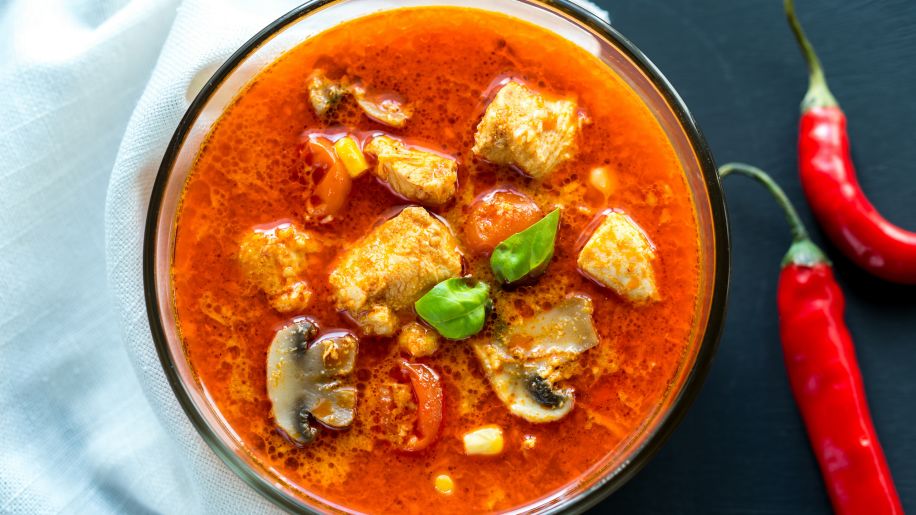
Spicy Dishes
Your taste buds may be in heaven after a bite of buffalo wings, chicken vindaloo, or some other fiery feast. But if you’ve got IBD, chances are the rest of your GI tract won’t be loving it so much. The problem? Spicy foods are gastric stimulants (just like alcohol and caffeine) and can irritate… Show More
Your taste buds may be in heaven after a bite of buffalo wings, chicken vindaloo, or some other fiery feast. But if you’ve got IBD, chances are the rest of your GI tract won’t be loving it so much. The problem? Spicy foods are gastric stimulants (just like alcohol and caffeine) and can irritate your colon, says Woodward.
Show Less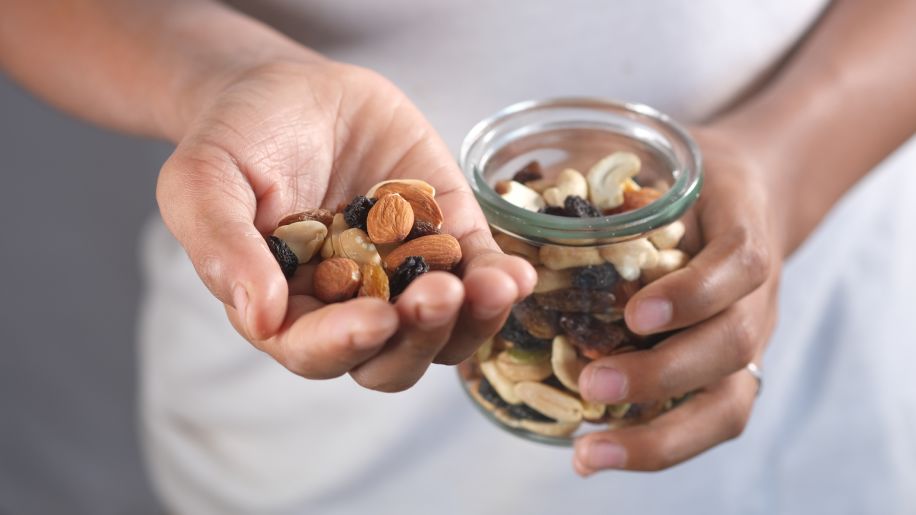
Nuts, Seeds, and Popcorn
Walnuts, almonds, peanuts, flaxseeds, chia seeds: Nutritionists are usually big fans of these foods because they contain healthy fats and other beneficial phytonutrients. But they’re no-gos if you’re living with IBD, mainly because they’re difficult for your body to digest and can often cause… Show More
Walnuts, almonds, peanuts, flaxseeds, chia seeds: Nutritionists are usually big fans of these foods because they contain healthy fats and other beneficial phytonutrients. But they’re no-gos if you’re living with IBD, mainly because they’re difficult for your body to digest and can often cause cramping and bloating. Same goes for popcorn, especially because the hulls can further irritate your intestines.
Show Less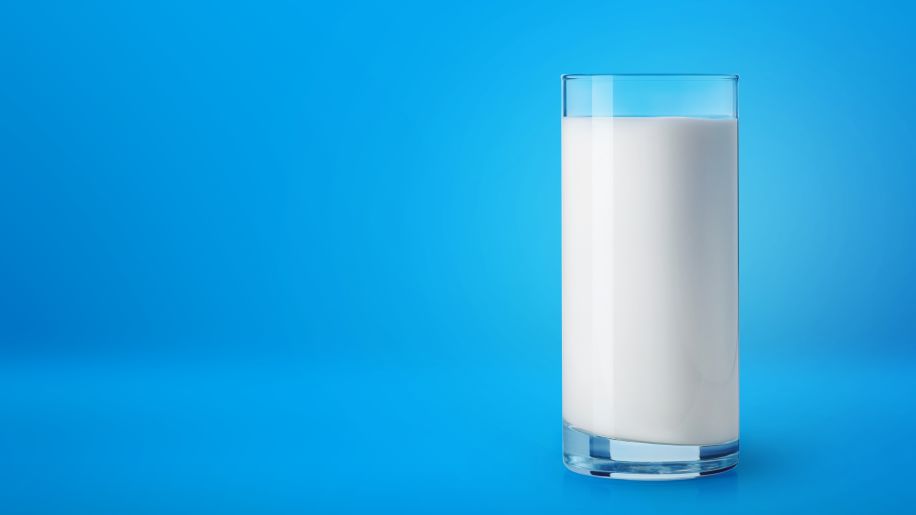
Dairy Products
Research suggests there’s little difference in dairy tolerance between people with IBD and those without IBD. But some people with IBD report that milk, cheese, and other dairy products make their symptoms worse, especially if they have Crohn’s disease (and may be lactose intolerant). Whether you… Show More
Research suggests there’s little difference in dairy tolerance between people with IBD and those without IBD. But some people with IBD report that milk, cheese, and other dairy products make their symptoms worse, especially if they have Crohn’s disease (and may be lactose intolerant). Whether you have ulcerative colitis or Crohn’s, it’s worth testing to see how you feel when you avoid dairy for a week or two.
Show Less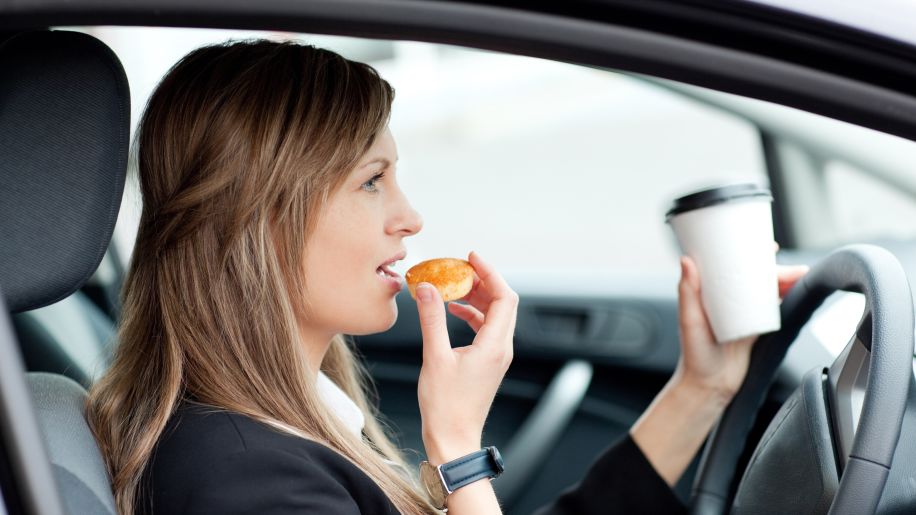
Anything Eaten Quickly
Keep in mind that the digestive process starts in your mouth, and the better you chew your food before you swallow it, the easier it will be for the rest of your digestive system to do its job. “Take time to slow down when you’re eating,” says Woodward. “After all, eating should be a relaxing activity.”

Schreiner P, Martinho-Grueber M, et al. Nutrition in Inflammatory Bowel Disease. Digestion 2020;101(suppl 1):120-135.
Knight-Sepulveda K, Kais S, et al. Diet and Inflammatory Bowel Disease. Gastroenterol Hepatol (N Y). 2015;11(8):511-520.
Fedewa A, Rao SS. Dietary fructose intolerance, fructan intolerance and FODMAPs. Curr Gastroenterol Rep. 2014;16(1):370.
Crohn’s & Colitis Foundation. What Should I Eat? Accessed October 26, 2022.
Y Chen, C Ma, et al. P082 Spicy food is a vital trigger for relapse in patient with inflammatory bowel disease, Journal of Crohn’s and Colitis, Volume 14, Issue Supplement_1, January 2020, Page S176.
Reddavide R, Rotolo O, Caruso MG, et al. The role of diet in the prevention and treatment of Inflammatory Bowel Diseases. Acta Biomed. 2018;89(9-S):60-75. Published 2018 Dec 17.
IBD Clinic University of Alberta. IBD and Diet: Lactose Intolerance. Accessed October 26, 2022.
Featured Content


video

article

article

article
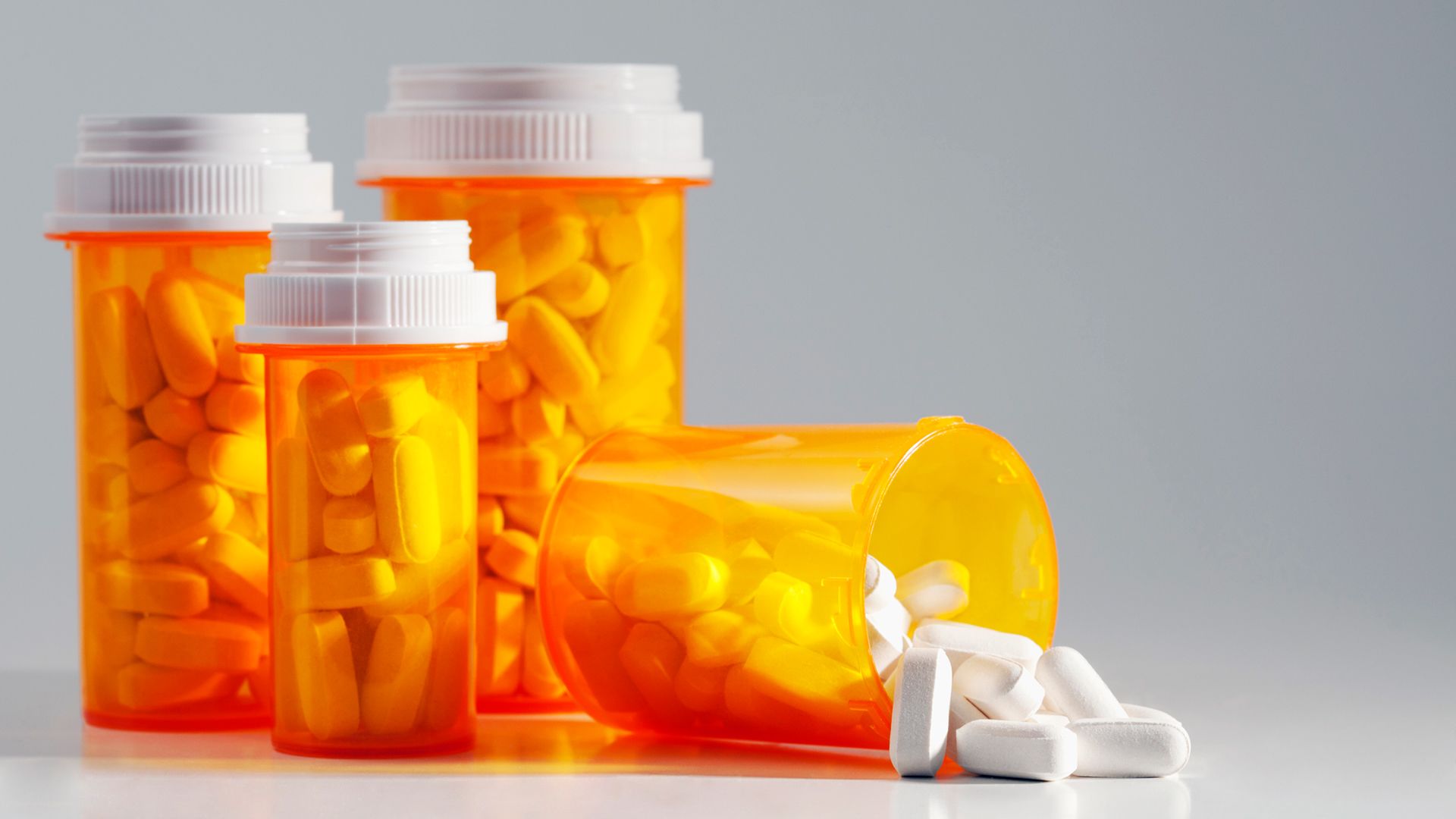
article
